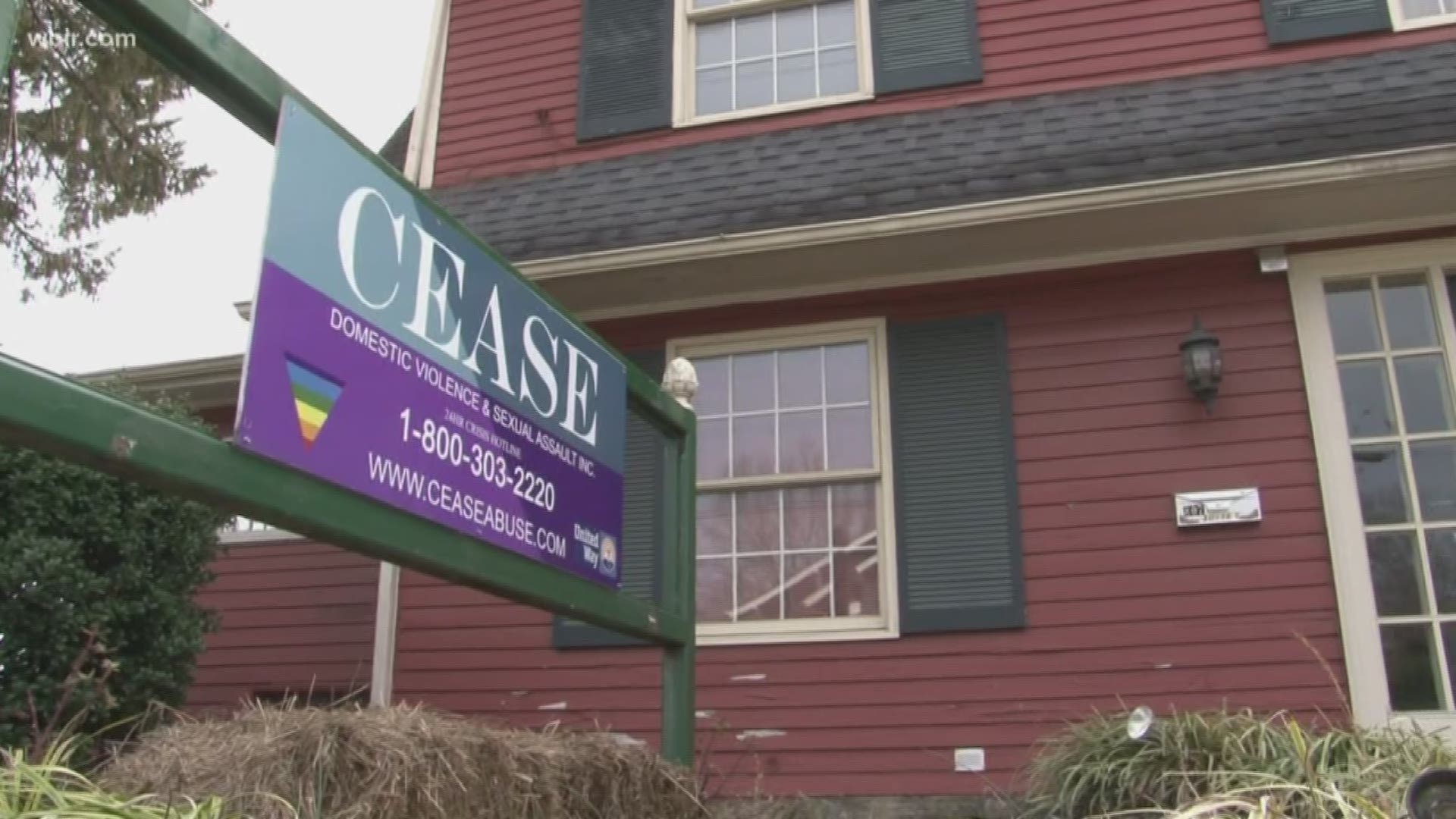MORRISTOWN, Tenn. — CEASE Domestic Violence & Sexual Assault, an East Tennessee nonprofit that provided shelter and services for domestic violence survivors in six counties, closed its doors for good in January after it lost federal funding.
Records obtained by 10News show an investigation by the Tennessee Department of Finance & Administration. The documents describe a long list of reasons CEASE could lose grant funding, from improper record-keeping to "possible waste or abuse" of funds.
In the documents, officials express concern with CEASE's "unallowable" use of grant funds and "insufficient" internal controls and organization.
Officials also concluded that CEASE appeared unable to pay debts owed, and that the nonprofit's accounting team left it "susceptible to possible fraud, waste, or abuse."
The first document, a program monitoring report, was issued in September 2019 regarding an on-site financial review by the DFA's Office of Criminal Justice Programs in July 2019. The second document was issued in October 2019 after OCJP received additional information for its review — and it began with a warning.
"...There are serious concerns with how your program is being administered and the lack of oversight," a letter attached to the review states, addressed to CEASE's board chair Roxanne Bowen.
Each review contained a list of issues CEASE had to address to renew its contract and maintain grant funding.
"If all concerns are not satisfactorily resolved by February 1, 2020, your current contract may be terminated for cause," the letter continues.
The shelter closed its doors the day before the letter's deadline.
"CEASE is closing its doors Friday, January 31st, 2020, after 39 years of service in the community, due to loss of funding," CEASE's website now reads.
The two review documents list a combined 17 issues. The issues include "unallowable" expenses billed to grant funding, improper documentation, altered time cards and concerns with internal organization. Auditors also wrote that CEASE appeared unable to pay debts owed after an expansion.
"Unallowable" expenses charged to grant funding:
Improper salary-related expenses billed to the grant, the records state, included fundraising activities, employee overtime, staff salaries that were partially or fully funded by another federal source, and staff time charged to the grant that was actually "spent in a different federal program."
Other improper costs reportedly billed to the grant included gift cards, sales taxes, and food for a staff lunch.
Between salary-related costs and other "unallowable" expenses, the documents list questioned costs totaling $24,513.79.
Improper documentation:
The reviews state that CEASE was missing several types of necessary records, including costs billed to the grant. They also state that the nonprofit did not meet audit requirements for 2018 and submitted two quarterly expense reports late.
One of those reports was almost three months late, the October review states.
The review also reports that CEASE altered employee time cards between two financial monitoring visits in 2019. While the time cards still showed the same amount of time worked, the distribution of time among different projects was reportedly altered.
"Therefore, the auditor is not reasonably assured of the accuracy of the information received and believes this could be considered as possible waste or abuse," the October review states.
The reviews note the reason auditors made two different visits in 2019. When the team first visited in May, reviews state that CEASE was unprepared and didn't have documents ready for review. As a result, auditors visited again in July.
The September review lists several concerns with CEASE's documentation of personnel changes — seven vacancies, seven hirings, and one position that had been vacant for more than 45 days. It states that none of these were properly reported.
Finally, the reviews stated that personnel records were missing necessary documents: 42 records lacked evidence of character references; 13 lacked evidence of employees' qualifications; and six lacked evidence of training on criminal injury compensation, which is required for "direct interaction with victims."
Lack of internal controls:
The October review concludes that CEASE "does not have sufficient internal controls in place." It pointed specifically to the nonprofit's accounting department, a mother-daughter team.
"The accounting function is a mother and daughter team, which leaves the agency susceptible to possible fraud, waste, or abuse," the review reads.
It also states that expenses were charged to the grant twice at times, "which demonstrates there isn’t a system in place to note when an expense has been recorded in the general ledger."
Auditors also wrote that CEASE accountants could make changes to past transactions in the nonprofit's general ledger, leaving no record of adjustments.
Possible insolvency:
The October review also concluded that CEASE appeared not to be solvent, or able to pay debts owed. The review states that CEASE expanded in the past two years and had to take out a line of credit. The nonprofit also reportedly received loans from one of its board members and its executive director.
While the review noted that CEASE's financial health had improved in 2018, it said "more needs to be done to continue operating at the current level and become financially stable."
What's next:
CEASE served Claiborne, Hancock, Union, Grainger, Hamblen and Hawkins counties.
Another East Tennessee nonprofit, Safe Space, said it will now provide services in Hamblen and Grainger counties — but that leaves four counties with a possible gap in services for domestic violence survivors.
Other nonprofits can still help people as they escape or recover from domestic violence. YWCA, a national women's organization with an office in Knoxville, said it can help people affected by the CEASE closure find the resources they need.
MORE INFORMATION: East Tennessee domestic violence resources

